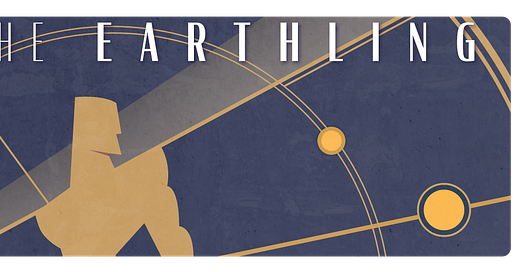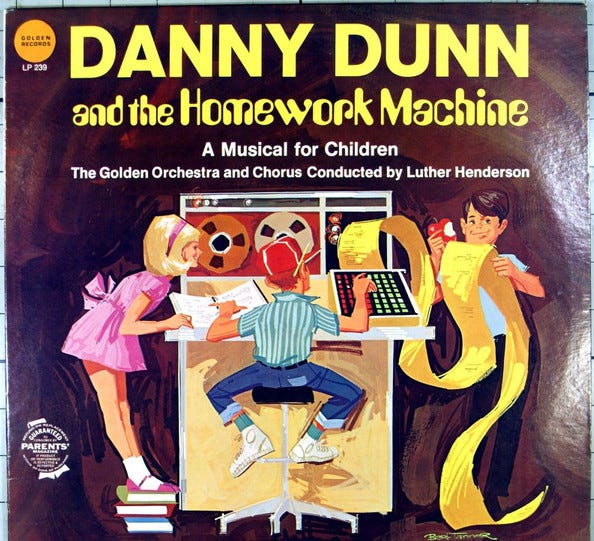Earthling: Special Year-End Issue
The 6 biggest stories from 2022 plus NZN's tweet of the year!
Happy Holidays! Below is The Earthling’s annual guidance on how to speak knowingly about the previous year and about challenges to humankind that are visible on the horizon. Just remember: Nothing impresses people at a New Year’s Eve party more reliably than a well-informed impromptu speech on the need for more global governance. (Also: Nothing says “Hey I like you but I think you really need some enlightenment” quite like a gift subscription to the Nonzero Newsletter.)
Here are the most important half-dozen Earthling-esque stories of 2022, plus the bestowal of our coveted tweet-of-the-year award:
Cold War II
This year removed any doubt that another Cold War is upon us. Among the datapoints:
1. The invasion of Ukraine started a proxy war between the US and Russia that was in some ways reminiscent of the war between the Soviet Union and the US-backed mujahideen in Afghanistan in the 1980s. The invasion also triggered US-orchestrated sanctions that created a degree of economic separation between Russia and the West not seen for decades.
2. The issue of Taiwan’s relationship to China—which had been successfully finessed since Cold War tensions with China began to ease in the 1970s—heated up. President Biden repeatedly pledged to defend Taiwan (which China considers a kind of wayward province) in the event of Chinese attack—a departure from the “strategic ambiguity” that had long characterized America’s pronouncements on the issue. (The White House had to walk back Biden’s comments so many times that the walkbacks lost credibility.) And, in a move that even Biden considered unwisely provocative, House Speaker Nancy Pelosi visited Taipei. The visit predictably evoked a hostile response from Beijing, including large and extended military exercises off Taiwan’s shores. Nor was Beijing happy about the American policy captured in this New York Times headline: “US Aims to Turn Taiwan Into Giant Weapons Depot.”
3. In October, the Biden administration assembled a package of restrictions on tech exports to China that some observers described as a declaration of economic war. The new rules—aimed at slowing China’s progress in advanced computing—apply not just to US exports but to exports from other countries that contain US-made technology. One difference between this Cold War and the last one: Now China can file a suit against such restrictions at the World Trade Organization, which it’s done.
4. America’s policy toward developing nations—notably in Africa—is increasingly seen as part of a global contest with China, and to some extent with Russia, for influence. During the first Cold War, this global-chessboard mindset fostered opportunistic American support for authoritarian and autocratic regimes—and various other American policies that weren’t good for the countries whose welfare the US was supposedly trying to advance.
5. The tendency to view US foreign policy as a global contest between liberal democracy and authoritarian autocracy became more entrenched among mainstream foreign policy elites. Sermons in NZN about how this worldview could become a self-fulfilling prophecy failed to induce enlightenment within the Blob. As did sermons about the number of critical global problems (including some discussed below) that won’t be adequately addressed so long as Cold War II persists.
Artificial Intelligence
In August, following the release of the art-generating Artificial Intelligence known as DALL-E 2, New York Times tech reporter Kevin Roose wrote that the consensus view of experts on when AI would become a “world-changing force” had shifted from years or decades from now to “right around the corner, for better or for worse.”
And that was before the release of the silicon-based discussant ChatGPT—which, like DALL-E 2, was created by OpenAI and, like DALL-E 2, freaked people out with its eerie approximation of human capability.
Among the other developments that ensured 2022 a special place in the definitive history of AI that some AI will someday write: the debut of DALL-E 2 competitors Stable Diffusion and Midjourney and the fathoming by Google DeepMind’s AlphaFold of the structure of almost every known protein.
Worries about the implications of all this focused on things like: (1) the economic dislocation that will be caused by the automation of various vocationally valuable cognitive skills; (2) the pedagogical implications of students being able to outsource their assignments to machines; (3) the “alignment problem”—which ChatGPT, at The Earthling’s prompting, defined as “the challenge of ensuring that AI systems behave in ways that are aligned with human values and goals.”
As some observers, including Henry Kissinger, have noted, the alignment problem could be especially nettlesome if AI evolves in the context of an arms race—such as (just to pick one example out of a hat) an arms race between the US and China. This points to one upside of the AI revolution: It gives The Earthling an opportunity to deliver another sermon about the number of serious challenges to humankind that are best addressed via institutionalized international cooperation, aka global governance.
There are of course many other upsides for humankind, ranging from medical breakthroughs to real-time and reliable automated translation. And there are upsides for non-humankind! AI has been used for things like detecting distress in chickens and catching tiger-poachers in India.
Still… the AI revolution seems sure to add turbulence to a planet that wasn’t exactly in a state of pervasive equanimity to begin with.
War in Ukraine
As you may have heard, Russia invaded Ukraine in February. Its attempt to seize the capital and implement regime change failed, and its early gains in some other parts of the country were rolled back with the help of weapons and intelligence provided by the US and other NATO countries.
Putin said he launched the war to counter the threat posed to Russia by (1) the prospect that Ukraine would join NATO and (2) the de facto NATOization of Ukraine via an influx of NATO weapons and trainers. Two months before the invasion he issued a list of demands aimed at addressing that threat, but the US declined to consider the demands he deemed most important, notably a guarantee that Ukraine wouldn’t join NATO.
After the invasion, mainstream US foreign policy elites insisted it hadn’t been about NATO but rather was an expression of Putin’s imperial ambitions. (More than one of them said that in a pre-invasion speech Putin had “barely mentioned” NATO when in fact he mentioned NATO 40 times.)
Whatever Putin’s motivation for invading, his claim that he is fighting a war against existential encroachment by NATO and the West figures centrally in his attempt to rally the Russian people behind the war as he mobilizes more troops and puts the economy on a war footing. And the near-consensus in the US that Putin’s war actually reflects implacable imperialism is helping to sustain massive material support for Ukraine and to discourage talk of ending the war anytime soon through negotiation.
So the prospect of a long war that devastates Ukraine and threatens to expand beyond its borders—and possibly even go nuclear—is very real.
Tweet of the year
Regular NZN readers know that The Earthling often features a “tweet of the week” (and occasionally even a tweet-of-the-week tournament). As part of our months-long preparation of this year-end edition of The Earthling, we assembled a distinguished panel of tweetoisseurs and asked them to trawl The Earthling archives, evaluating each tweet of the week in search of one that is worthy of the coveted tweet of the year title. As it happens, the winning tweet—composed by US foreign policy expert Stephen Wertheim—won the inaugural tweet of the week award way back on January 14th. And here it is:









